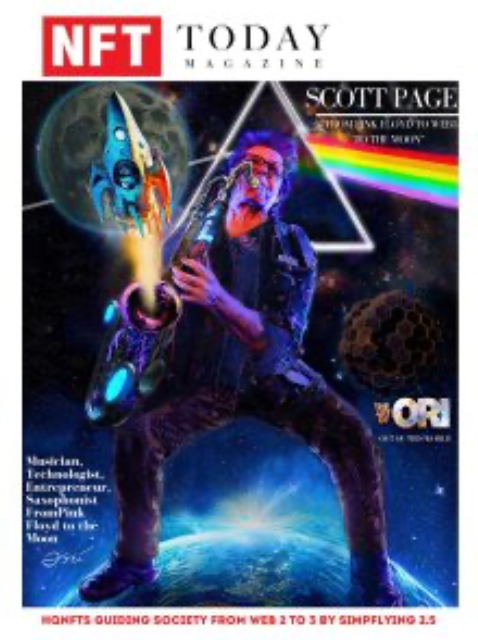Canada’s Digital Asset Dilemma: Why the Nation Risks Falling Behind in the Crypto Race
Staff Writer • 2025-02-21
As governments worldwide embrace Bitcoin and other digital assets to fortify monetary resilience, one country is conspicuously absent from the conversation: Canada. While nations like the U.S., the U.K., and even Germany have incorporated digital assets into their strategic financial planning, Canada’s lack of decisive action could spell economic stagnation. Bundeep Rangar, President and CEO of Fineqia International Inc., a firm specializing in digital asset investments, recently joined the Stonks Go Moon Podcast to break down the situation. His verdict? Canada must act fast or risk losing its edge in the evolving global financial landscape. The Case for a Canadian Digital Asset Reserve Governments worldwide are accumulating Bitcoin and tokenized assets as a hedge against inflation and economic uncertainty. According to Rangar, Canada is not just behind the curve—it’s at risk of losing out on the next wave of financial innovation. “Canada is the fourth-largest producer of oil in the world, but most of it gets exported to the U.S. at a discount,” Rangar explains. “If we want to open up global markets, tokenization of infrastructure financing is the way forward. It allows for international capital to flow seamlessly via blockchain-based structures, making investments more efficient and future-proof.” Beyond infrastructure, a national digital asset reserve would serve as a counter-inflationary hedge, offering an alternative to traditional fiat holdings. Countries like Germany learned this lesson the hard way, selling off Bitcoin reserves too early, only to see the asset skyrocket in value. Canada risks repeating the same mistake by not investing in digital assets now. What’s Holding Canada Back? Canada has historically been a leader in crypto-related financial products. It was one of the first countries to approve Bitcoin and Ethereum ETFs, yet it has since ceded its advantage, failing to expand its portfolio into other promising digital assets like Solana or Cardano. Much of the hesitation stems from a lack of regulatory clarity. The current Liberal government under Prime Minister Justin Trudeau has largely ignored digital assets, leaving uncertainty for investors and businesses alike. However, with a potential Conservative government led by Pierre Poilievre on the horizon—who has openly embraced Bitcoin—there’s hope for a shift in policy. “Poilievre even bought a hamburger using Bitcoin as a symbolic statement that it’s a viable medium of exchange,” Rangar notes. “That signals a level of openness we haven’t seen in Canadian leadership before.” The Tokenization Boom and Canada’s Missed Opportunity The tokenization of real-world assets (RWA) is reshaping finance, making previously illiquid assets tradable on blockchain networks. According to Rangar, Canada should be at the forefront of this transformation. Fineqia itself has been a pioneer in this space, launching the world’s first DeFi yield Cardano ETP (Exchange-Traded Product). The investment vehicle, listed on the Vienna Stock Exchange under the ticker YADA, allows investors to earn staking rewards on their Cardano holdings—something traditional ETFs don’t offer. “It’s been a phenomenal success,” says Rangar. “There’s clear demand for digital assets beyond just Bitcoin and Ethereum.” Yet, Canada’s broader financial ecosystem has yet to capitalize on tokenization in a meaningful way. In contrast, the U.S. is already integrating blockchain into traditional finance, with firms like BlackRock tokenizing money market funds to increase liquidity and accessibility. AI Meets Blockchain: The Next Frontier While blockchain adoption in Canada stagnates, artificial intelligence (AI) is surging ahead. But what if the two industries could converge? Rangar envisions a future where AI enhances blockchain usability, solving its biggest pain point: poor user experience. “Right now, using crypto is still a clunky process,” he explains. “AI can streamline authentication, reduce friction, and even assist with portfolio management through predictive analytics.” Beyond individual investors, AI could transform government payments, ensuring transparent, auditable financial flows that cut through bureaucratic inefficiencies. Rangar himself tested this concept with Art&Co, the world’s largest blockchain-based charity auction for COVID relief, ensuring every transaction was permanently recorded and traceable. Final Thoughts: Will Canada Lead or Lag? The choice is clear: Canada can either step up and embrace digital assets or fall behind as the rest of the world races forward. With its rich history of blockchain innovation and a tech-savvy population, Canada is well-positioned to become a global leader in tokenization, DeFi, and AI-powered finance. But that won’t happen unless policymakers take decisive action—before it’s too late.
See More Posts
A look at how NFTS, Web 3, Gaming, Cryptocurrencies and Blockchain are reshaping businesses across the globe.
@NFT Today Magazine


